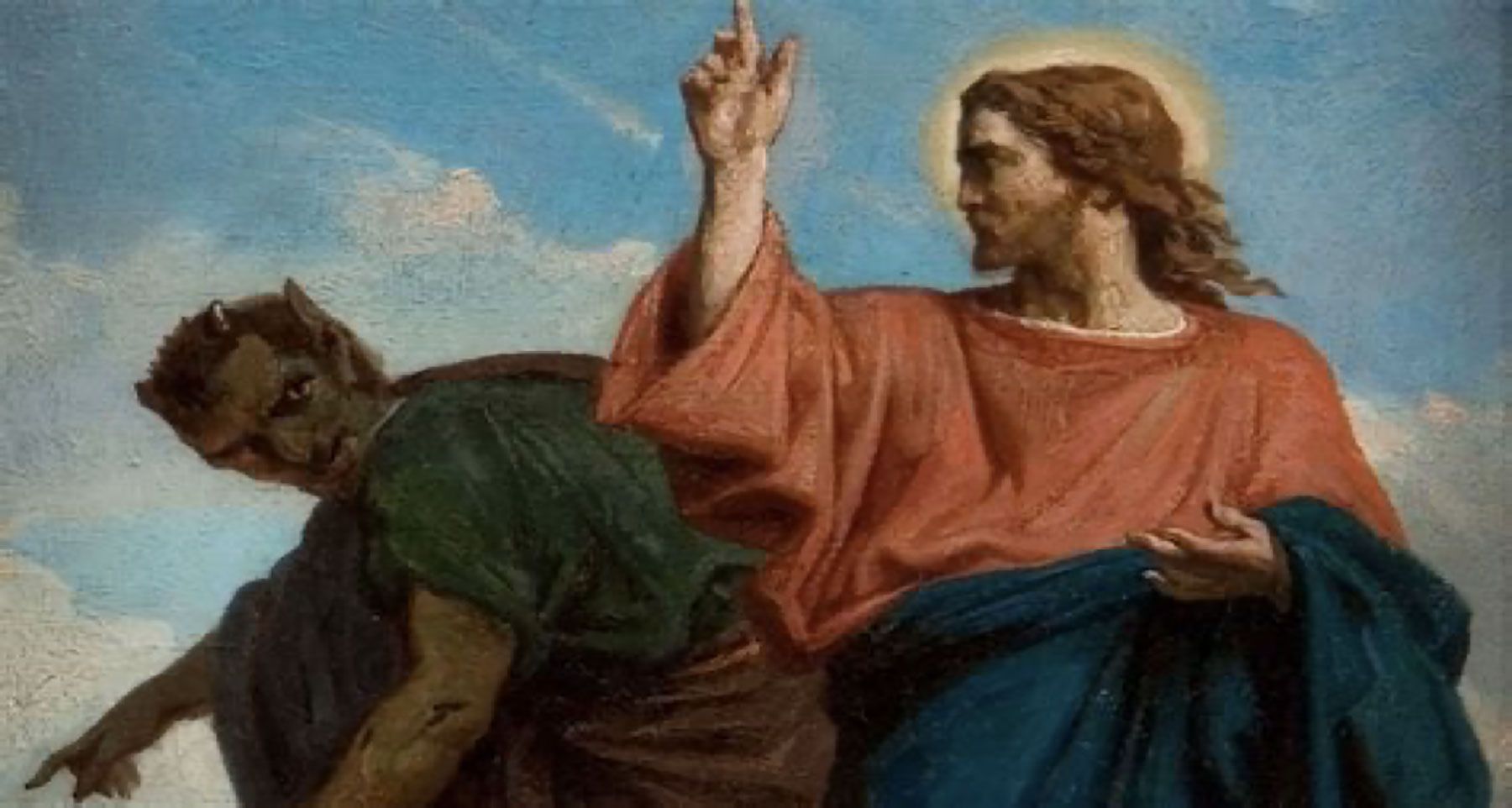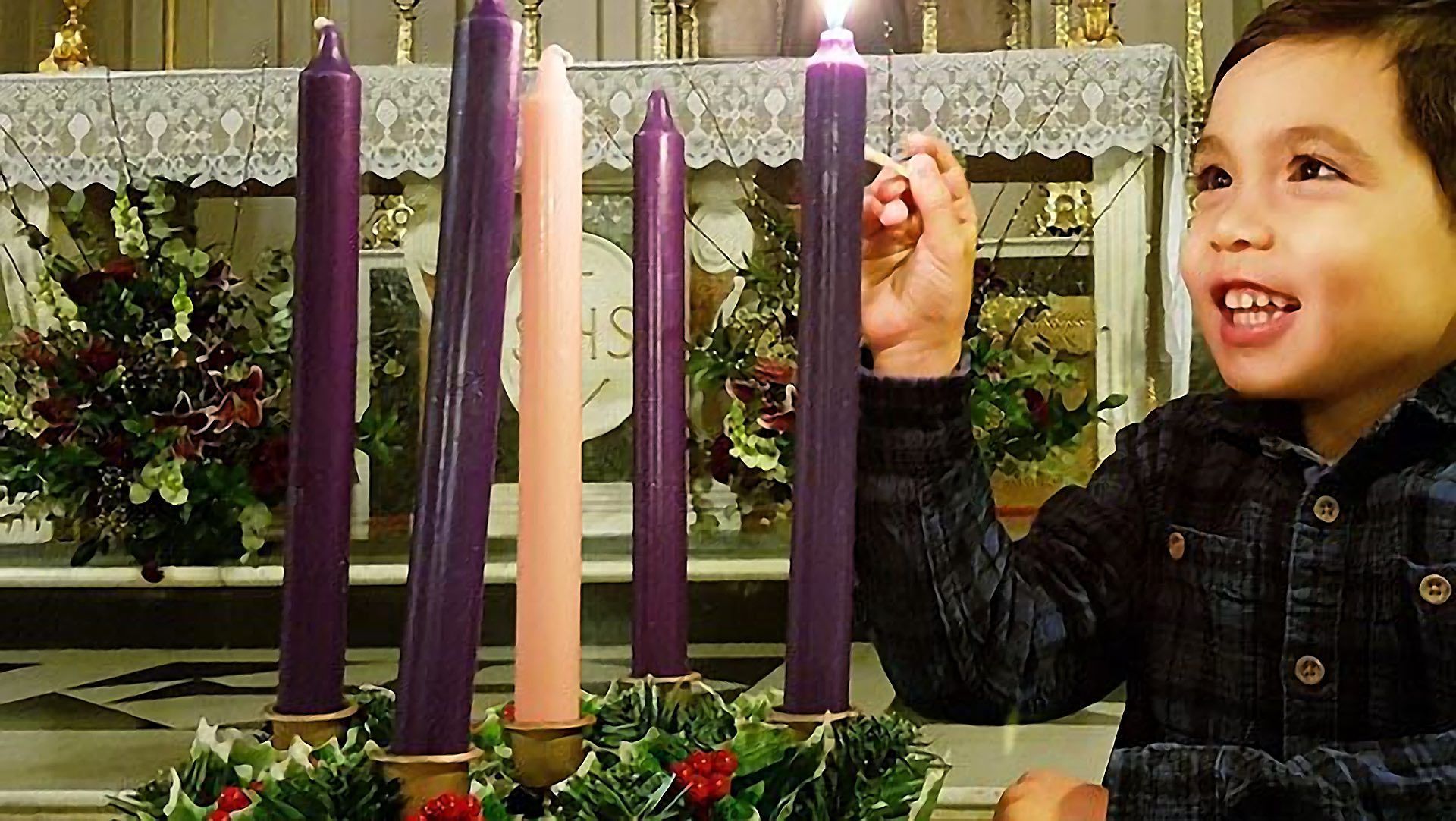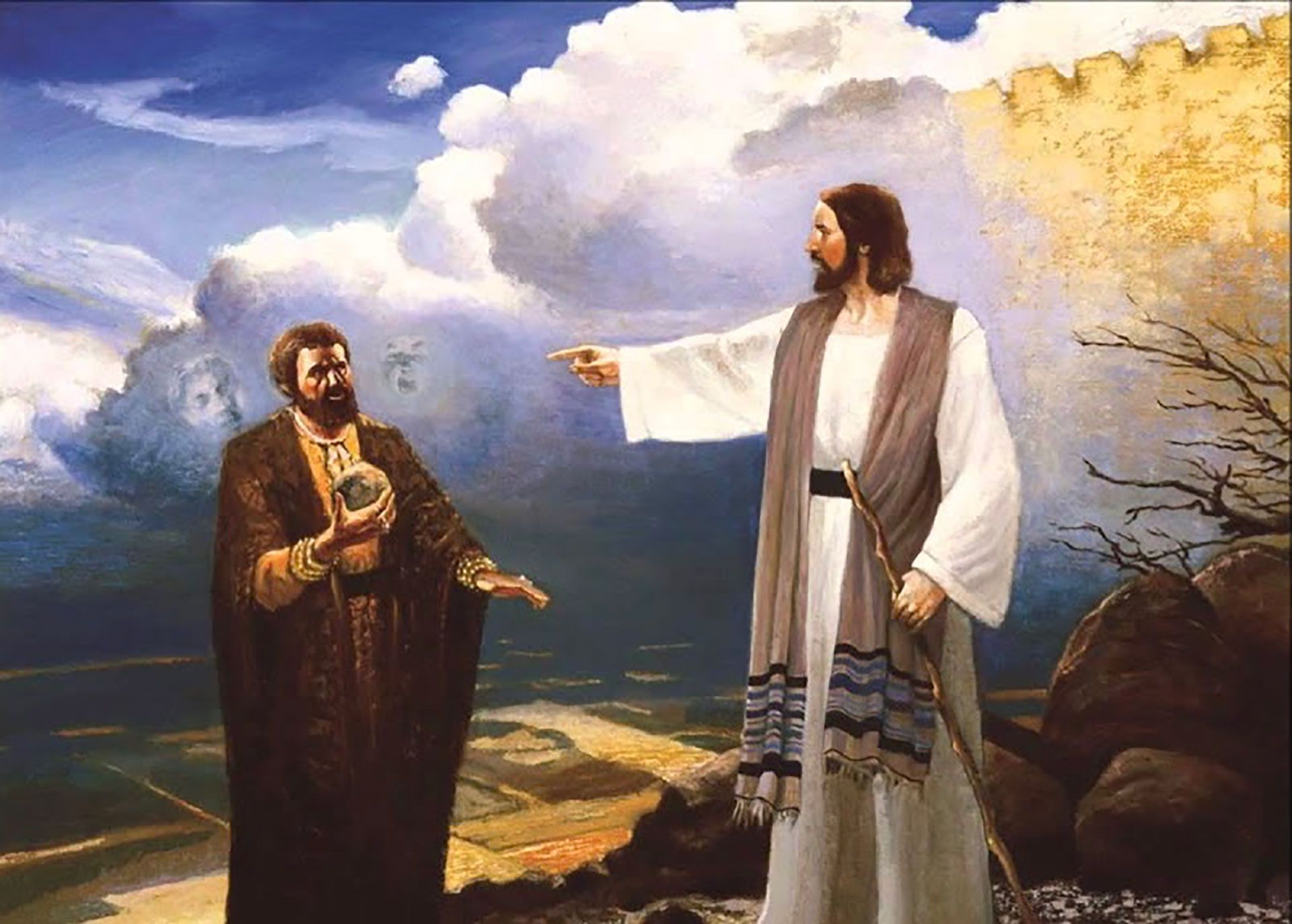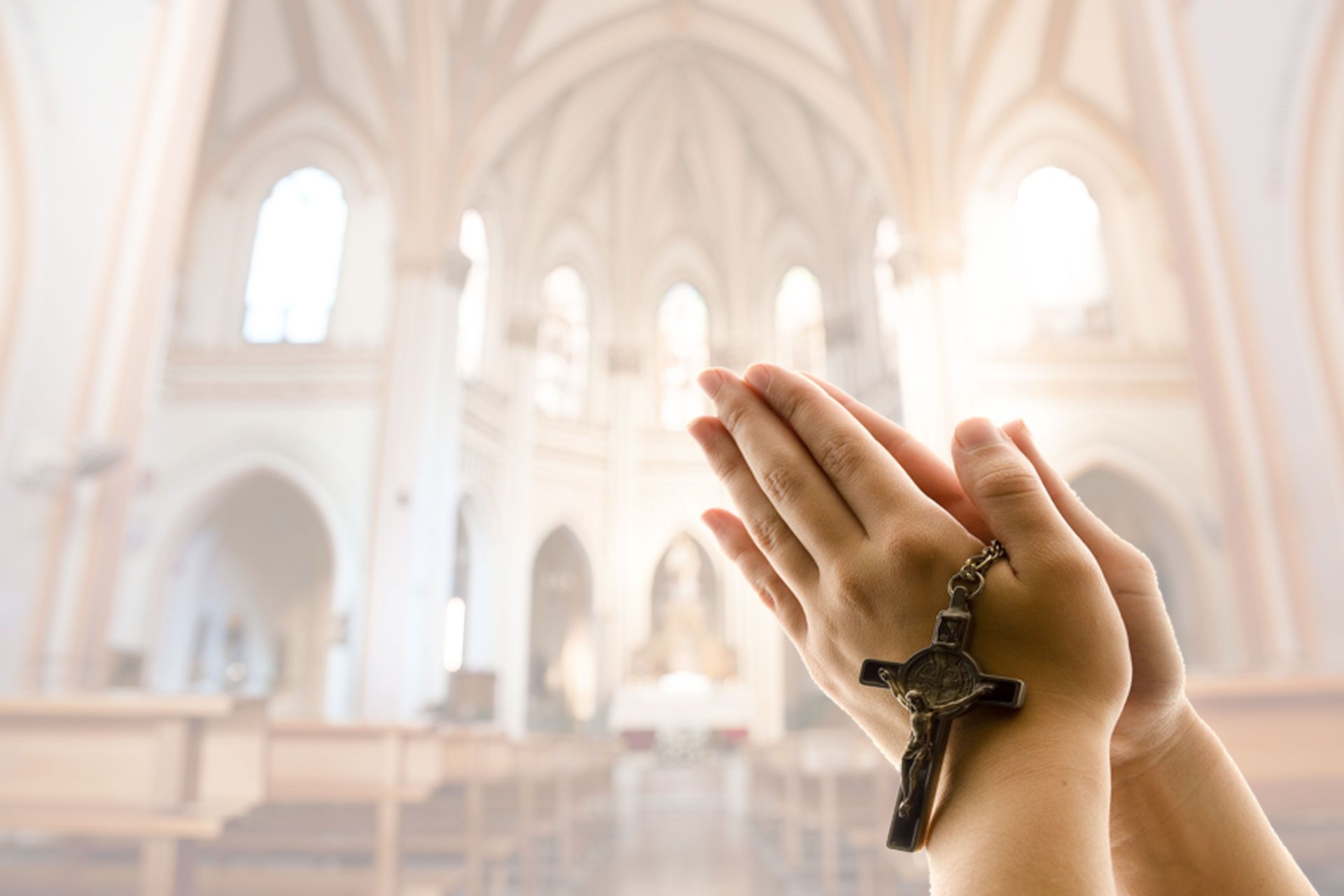What Is A Public Eucharistic Procession?
Just like Eucharistic Adoration, a Eucharistic Procession is an extension of the worship of Jesus Christ, truly present in the Blessed Sacrament.
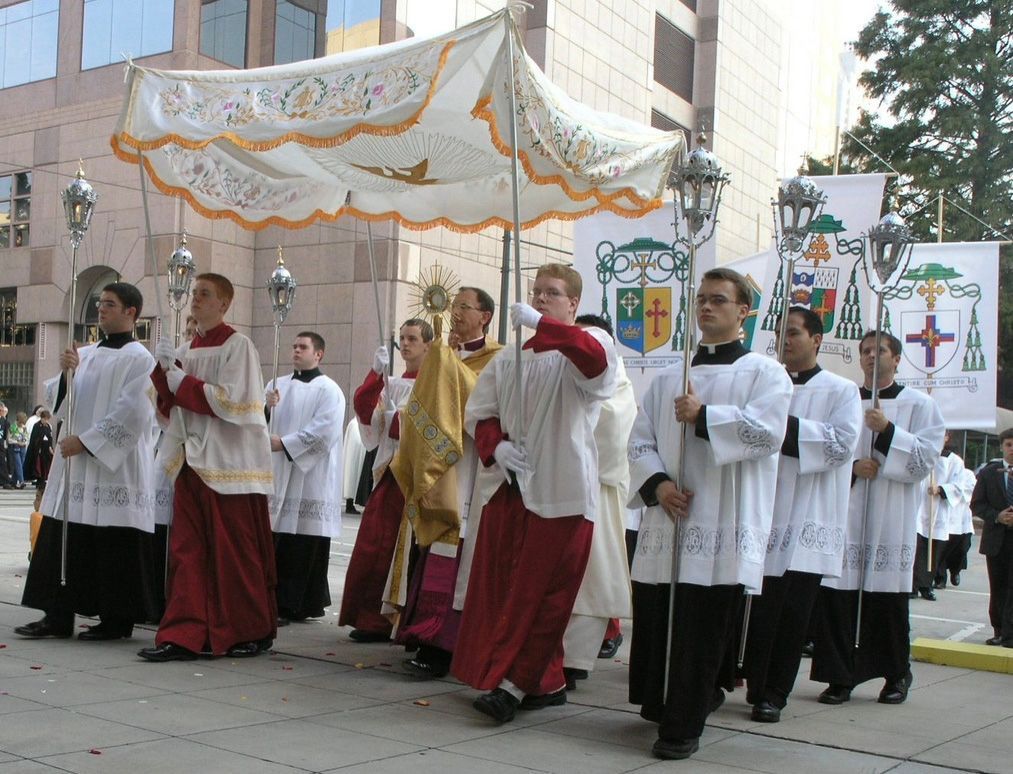
The supreme act of adoration and the source and summit of the Christian life is the celebration of the Mass, and that celebration is prolonged and intensified through Eucharistic worship outside of the Mass.
In Eucharistic Processions, the missionary aspect of the Eucharist is emphasized as we go forth into the world. Not only gazing upon our Eucharistic Lord, but walking with him, we experience what the disciples did 2000 years ago as they walked with Jesus, proclaiming the Good News to the world. A parish community that undertakes a Eucharistic Procession has made the decision to publicly proclaim its belief in Jesus’ True Presence in the Eucharist. By this public witness of faith, the parish invites people in the community to encounter the Risen Lord present in the Eucharistic Host. For those who participate in the procession, it is an opportunity not only to proclaim their faith but also to grow in their faith. The procession is, finally, an invitation asking Jesus himself to be a part of our daily lives, to be immersed in the world in which we live.
“We entrust these streets, these homes, our daily life, to his goodness. May our streets be streets of Jesus! May our houses be homes for him and with him! May our life of every day be penetrated by his presence.” Pope Benedict XVI, Homily on Corpus Christi, 26 May 2005
Eucharistic Processions became more prominent as the worship of the Eucharist outside of the Mass grew in popular devotions and as the Real Presence of Jesus in the Eucharist became more of a central focus of theological study. In the 13th Century, when the Solemnity of Corpus Christi was established for the universal Church, Eucharistic Processions quickly became a part of that celebration. Over the following centuries, Eucharistic Processions spread more and more throughout the Church.
The Church has consistently encouraged the development and growth of Eucharistic Processions. In many parts of the world today, Eucharistic Processions are a very important form of Eucharistic piety. Different cultures have developed traditions surrounding Eucharistic Processions including street decorations, songs, prayers, and other devotions. Reintroducing Eucharistic Processions where they have faded in popularity can be a powerful way to renew and rediscover both belief in the Real Presence of Jesus in the Eucharist as well as the missionary call that every Catholic shares: to bring Jesus to the world.
During Eucharistic Processions, “the Christian people give public witness of faith and to their devotion toward this sacrament” (Holy Communion and Worship of the Eucharist Outside of Mass, 101). By publicly proclaiming belief in Jesus’ True Presence in the Eucharist, the parish has an opportunity to invite the broader community to ask questions about the Eucharist and encounter Christ as the Blessed Sacrament is brought to them directly on the streets. For this invitation to be well received, attention and care is given to planning a reverent and beautiful procession that is expressive of the faith of the parish and above all the belief that Jesus is truly present in the Eucharist.
In today’s culture, where so many are indifferent or even hostile to religion in general and Christianity in particular, it is the witness of our faith that can build trust and rouse interest among members of our communities who on their own might not approach the Church. “Being a disciple means being constantly ready to bring the love of Jesus to others, and this can happen unexpectedly and in any place: on the street, in a city square, during work, on a journey” (Evangelii Gaudium, 127).
As a Eucharistic procession goes through the streets, a variety of responses from the people will be encountered. Some will hardly notice what is happening, some will be intrigued but keep on their way, and others will stop what they are doing and watch the entire procession go by, perhaps even asking those in the procession what they are doing. We will be ready to stop and have conversations with people who are intrigued or have questions. These conversations can be brief but powerful. We might even have cards or pamphlets that give a brief explanation of processions and the Eucharist and that invite people to Mass, Adoration, or another upcoming event that is specifically planned for those who are spiritually open or curious.
Source:
KNIGHTS OF COLUMBUS
1 COLUMBUS PLAZA NEW HAVEN, CT 06510-3326 203-752-4270
Inspired Reflections



